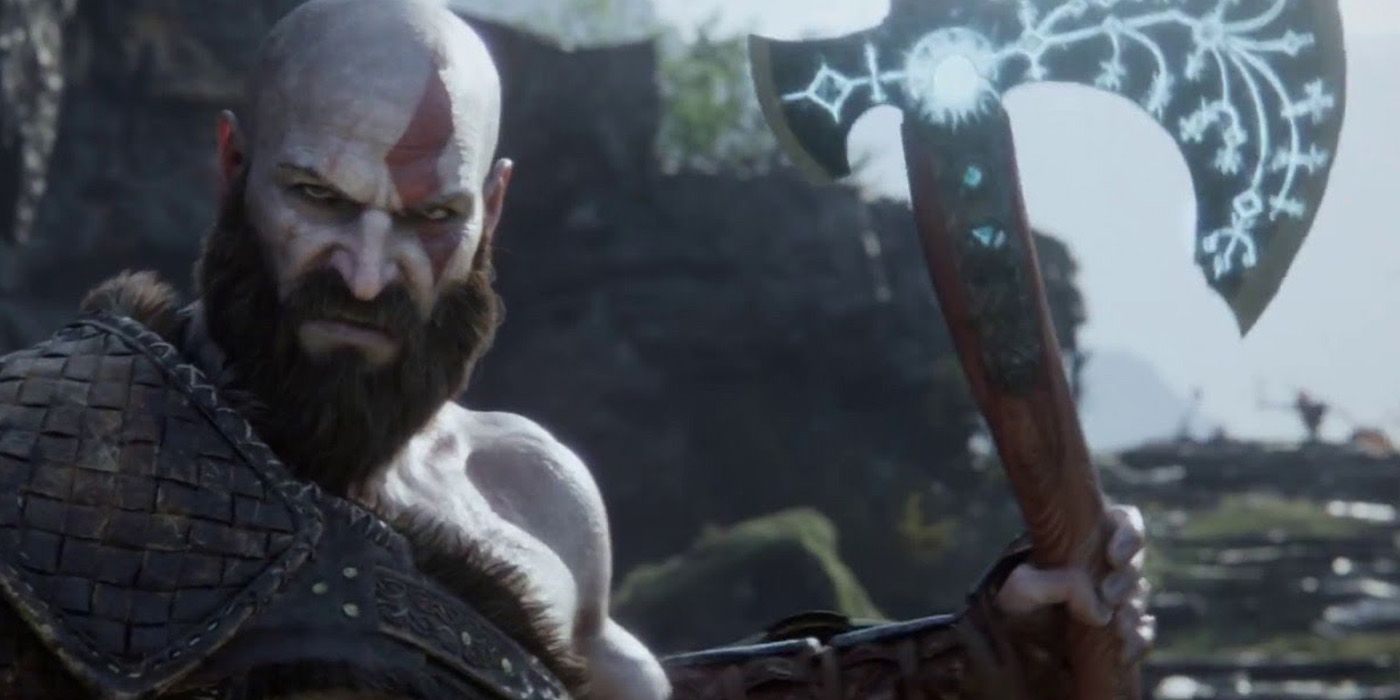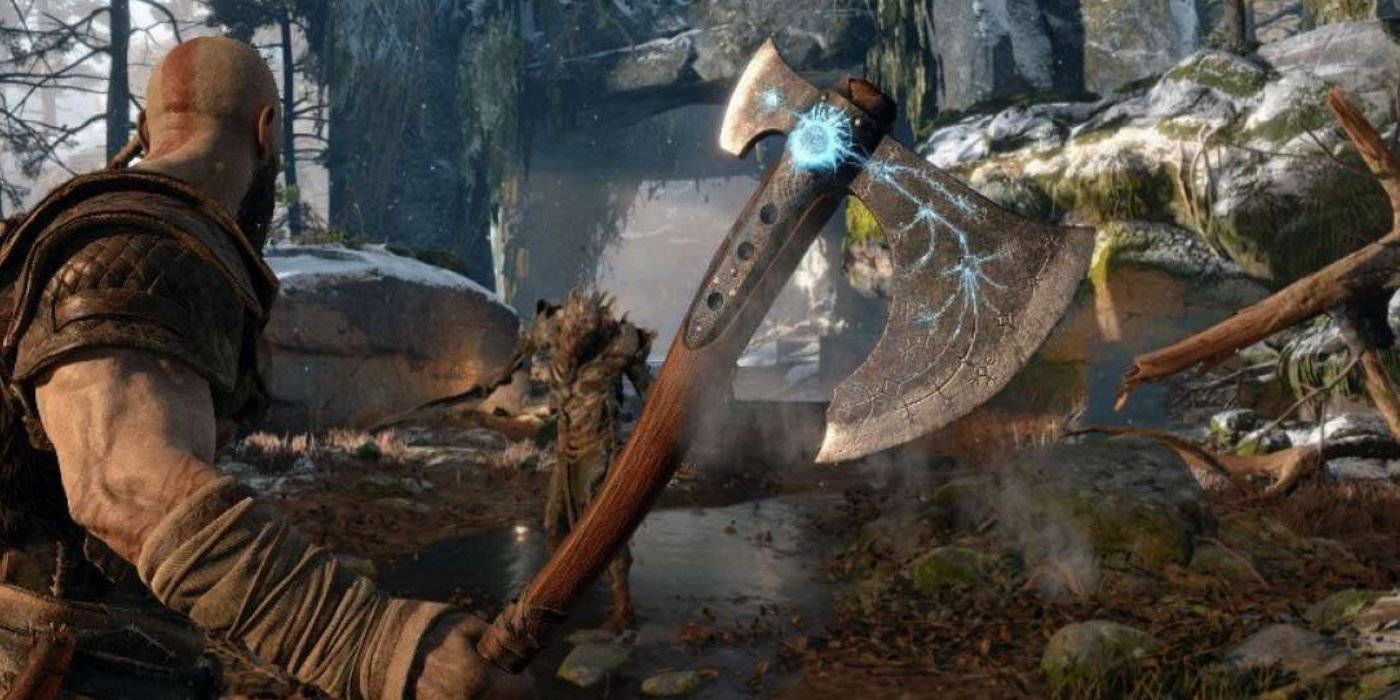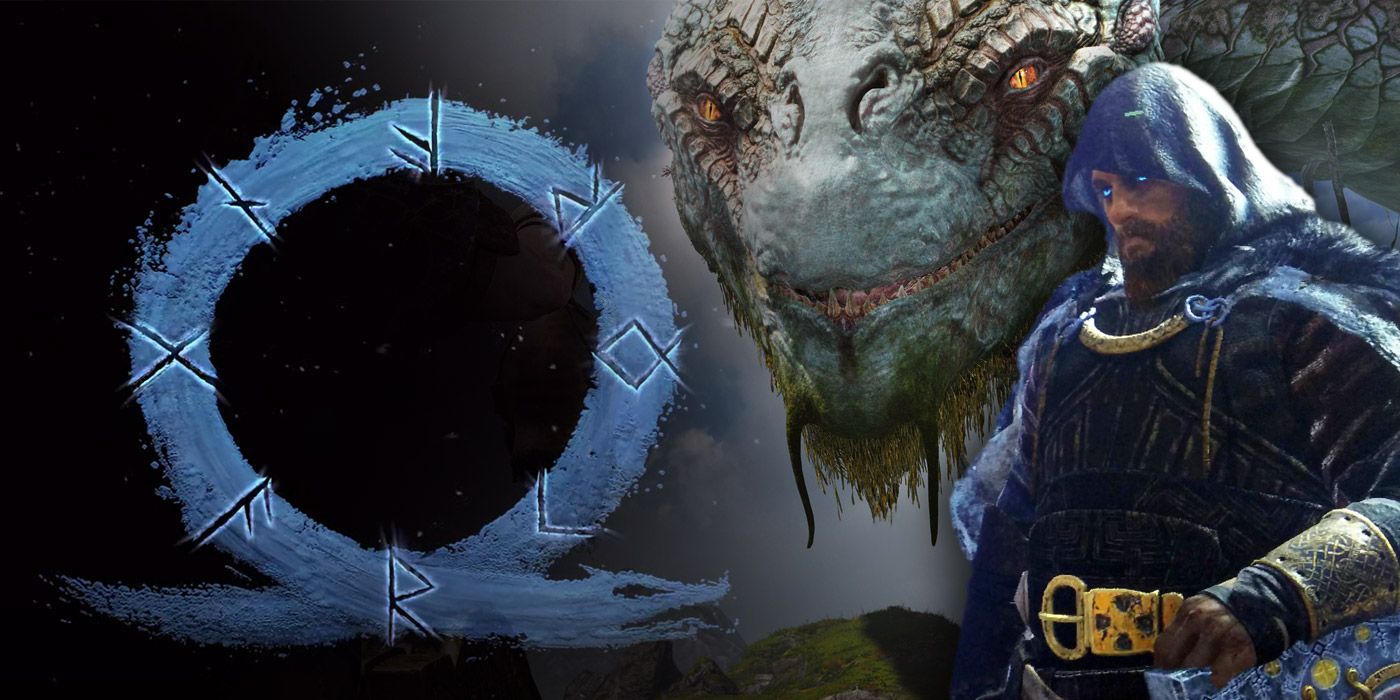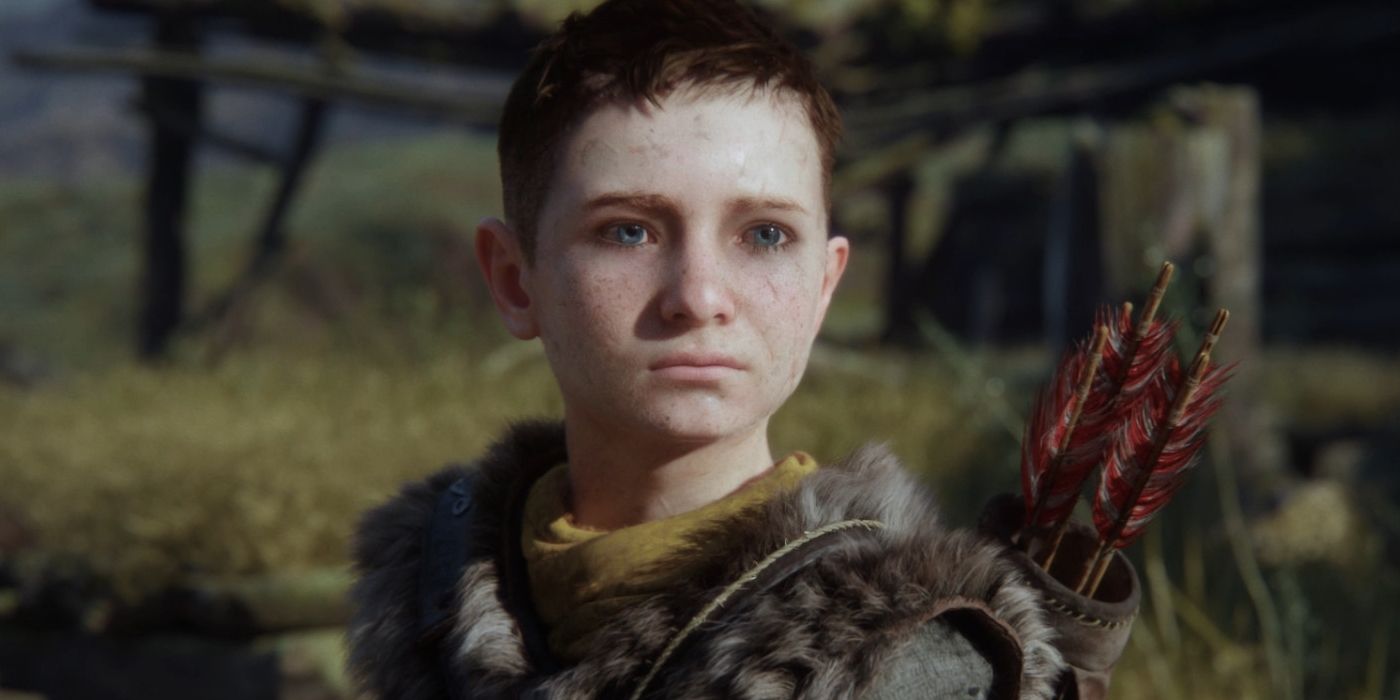Although Kratos would pick up the Blades of Chaos once again later in the game, 2018's God of War initially saw him forego his iconic weapons to wield the Leviathan Axe. This two-handed war axe is deeply tied to the story of the last game, and the details of its creation may hint at Kratos' role in the Ragnarok sequel.
In fact, the symbolism underlying the Leviathan Axe's creation and naming is extensive, and may even begin to hint at some of the deepest secrets in the God of War universe. Here's everything known about the weapon, what it means for the Norse end times, and what it could reveal about things to come.
The Leviathan Axe And Thor
The Leviathan Axe was made the same dwarves, the Huldra brothers, who forged Thor's hammer Mjolnir. In the God of War universe, Thor was ordered to kill all of the Jotnar in Midgard after Odin was cast out of the realm of Jotunheim for attempting to steal their knowledge of the future. Although some giants like the World Serpent Jormungandr survived Thor's rampage, the dwarves who made his hammer felt partially responsible. They forged the Leviathan Axe as a weapon to counter Mjolnir, and as a form of partial penance. It was given to Laufey, Atreus' mother.
The Leviathan Axe's name is inspired in-universe by Norse mythology's own giant sea creature, the World Serpent. In the myths the World Serpent and Thor fight to a stalemate, and are destined to fight again during Ragnarok. When that day comes, the prophecy says that Thor will deliver a fatal blow to the World Serpent, but will only walk another nine steps before succumbing to his poison. This version of the prophecy seems backed up in God of War's world. Players can find a depiction of Thor's poisoning on the final panel of the Jormungandr shrine.
According to God of War 2018's promotional podcast The Lost Pages of Norse Myth, the Leviathan Axe was designed to be "without equal." That's not strictly true, however. As its basis in the Jormungandr myth suggests, the Leviathan Axe is likely the perfect equal to Mjolnir, just as Thor and the Jormungandr are themselves equally matched.
Breaking The Stalemate
Thor and the World Serpent are so perfectly matched in the God of War universe, in fact, that time itself breaks before either one of them can get the upper hand. In one piece of in-game dialogue, Mimir explains that during Ragnarok, Thor's battle with the World Serpent will so violently shake the tree of life that it will splinter, sending the World Serpent back to a time before his birth.
Freya confirms that the sudden appearance of the World Serpent in the Lake of the Nine caused the pre-Ragnarok Thor to attack the creature. This leads to their first stalemate, which from the Jormungandr's perspective is actually their second, and sets up their Ragnarok re-match. In other words, it seems impossible for either Thor or the World Serpent to be the last man standing.
It seems likely that during the next game, players will witness Thor knocking the World Serpent backward through time. The time travel plot isn't the first incident of God of War tweaking its source material. In Norse mythology, Baldur is killed by Hod when Loki tricks the blind god into throwing a spear of mistletoe at him. In God of War, Atreus' mistletoe arrows break Baldur's immunity, allowing Kratos to deliver the killing blow.
It's very possible that a similar move will be pulled in God of War's Ragnarok sequel, where the World Serpent will poison Thor before being sent back in time, weakening Thor and allowing Kratos to deliver the killing blow with the Leviathan Axe. This would allow Kratos to be directly involved in Thor's death, while still fulfilling the World Serpent's place in the mythology symbolically by having the stalemate finally broken by an axe inspired by the creature.
The Name Of The Leviathan Axe
There's another aspect to the Leviathan Axe, however. Although its name is inspired by the Jormungandr, the Leviathan itself is not a creature from Norse mythology. The Leviathan is tied to Abrahamic religions, and just as God of War 3 was originally planned to end with the establishment of monotheistic religions, the death of the Norse gods may see that connection made.
Lif and Lifthrasir, the man and woman who survive Ragnarok, certainly resemble Adam and Eve. The time travel plotline would also indicate that there will be two versions of the World Serpent present at Ragnarok: One who will be knocked back in time, and an older version who was already sent back and is looking for a rematch. Its possible that the older version will survive Ragnarok and will become known as the Leviathan of a later mythos.
The name of the Leviathan Axe may also be a reference to Laevateinn, a weapon from the Poetic Edda. In the poem Fjolsvinnsmal, Laevateinn is wielded by Loki, though exactly what sort of weapon it is supposed to be is left ambiguous. The word Laevateinn is in no way related to Leviathan, likely making this a clever bit of word-play on the part of the God of War writers. The root of the word is "Lae," which means "deceit" in Old Norse, and is also the root of one of Loki's nicknames, Laegjarn. It's possible that the name of Kratos' axe lightly hinted at Atreus' true identity from the very start of the last game
Kratos continues to use the Leviathan Axe even after retrieving the Blades of Chaos, but Laevateinn's connection to Loki may see the Leviathan Axe wielded by an older Atreus in the next game. All that can be known for sure, however, is that God of War is packed with detail and symbolism which has hinted at plotlines in the past, and will likely do so again in the upcoming game.
The sequel to God of War is currently in development for PS4 and PS5.




